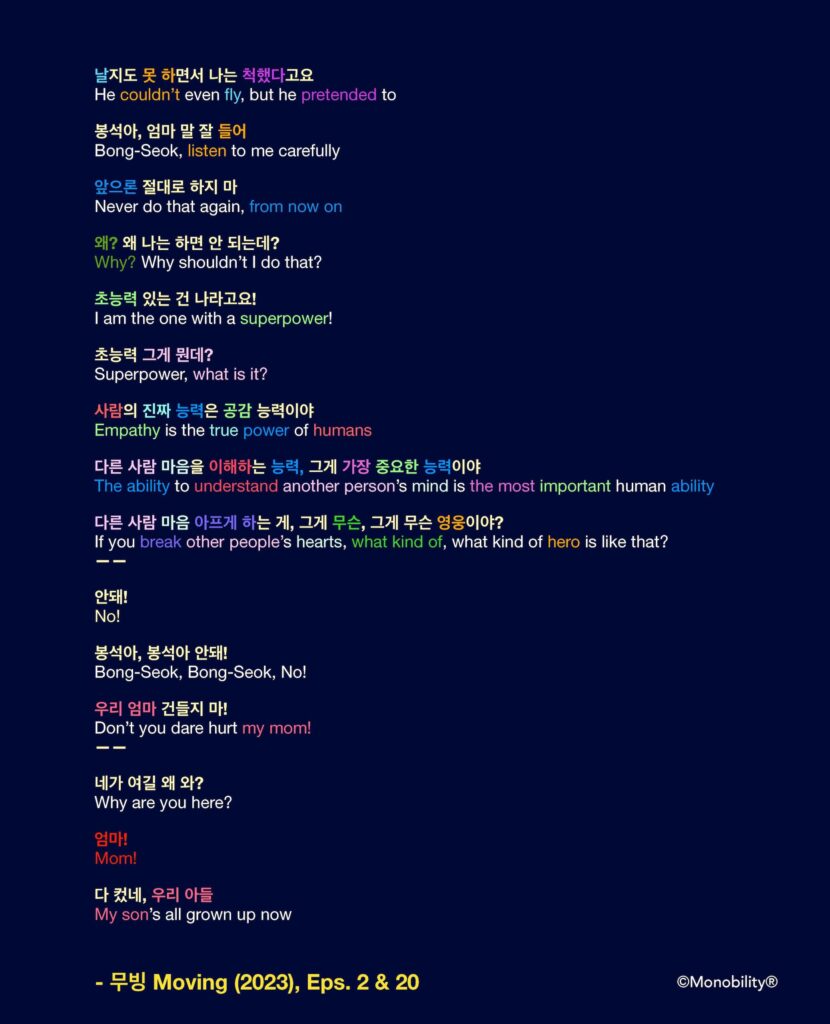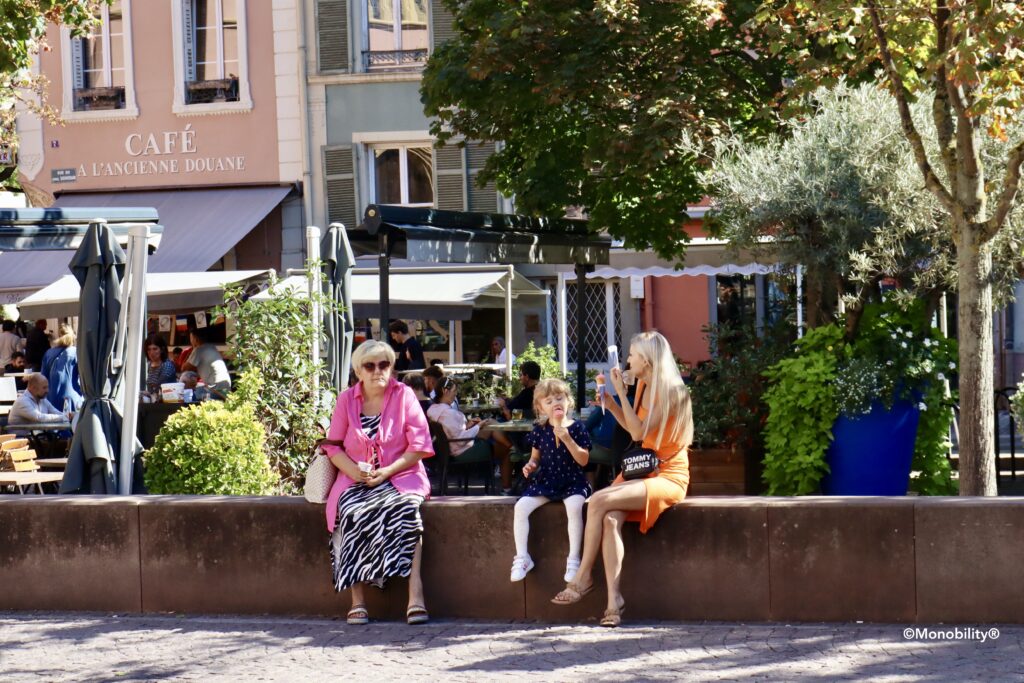Your teachers or textbooks may tell you simply that Korean possessive adjectives are 나의, 내 (my), 너의, 네 (your), and 우리, 우리의 (our), etc. But in real-world conversations, Koreans often use 우리 to say “my”, instead of 나의/내. This happens when 우리 modifies someone or something that the speakers feel is very close or important in their daily life, such as family members, community, or even language and country:
- 우리 아들 my son [ family member; nobody says “내 아들” in a conversation with a 3rd party. One may say “저희 아들” when speaking respectfully with someone senior. ]
- 우리 딸 my daughter [ family member; same as above; 저희 딸 is respectful register ]
- 우리 남편 my husband [ family member; this doesn’t mean the speaker is a polygamist. Do NOT translate it as “our husband” in English; 저희 남편 works, too. ]
- 우리 와이프 my wife [ family member; same as above. Do NOT Translate it as “our wife” in English. People also say “제 아내”, “저희 안사람,” “우리 집사람” or “우리 마누라”, depending on their generation, whom they are talking with, etc. ]
- 우리 개/강아지 my dog/puppy (pet)
- 우리 고양이 my cat (pet)
- 우리 선생님 my teacher [ Nobody says “내 선생님” in Korean]
- 우리 집 my home, my house [ In this case, “내 집” can be often spoken, if you refer to your ownership. ]
- 우리 학교 my school [ nobody says “내 학교” in Korean ]
- 우리 회사 my company, my workplace
- 우리 동네 my neighborhood
- 우리 말 my language, our language [ nobody says “나의 말, 나의 언어” in a conversation ]
- 우리나라 my country, our country [ referring to one’s nationality. It may be confusing to some folks when you are a foreigner speaking with Koreans in Korea since Koreans mostly think of 우리나라 as Korea. ]
- 우리 엄마 my mom [ family member; Native Korean speakers never say “내 엄마”. ]
In the final episode of the latest international fantasy/action blockbuster “무빙 Moving” (2023), you can hear a Korean son call his mom 우리 엄마 (my mom), instead of 내 엄마 which would sound quite unnatural. His mom later says 우리 아들 (my son) which sounds more natural than 내 아들. Throughout this genre-breaking saga of superheroes, the lead actress 한효주 superbly portrays the complex role of a typical Korean mom who is also a humanistic ex-spy falling in love with a superpowered hero. After playing the mostly calm, toned-down spy-like character in most episodes but the last one, she suddenly shrieks like a mommy bird only when she sees her superpowered child flying to the battleground to protect her from danger. She doesn’t want her child to be hurt.
In an earlier episode, you might also capture a scene where she tells her child what the most important ability/power he should learn to acquire. She points out the importance of empathy, in other words, “consideration of others around you”. That is how many ordinary Korean moms teach their children to succeed in the highly networked, ultra-personalized Korean society.

How do moms in your country typically teach their children at home? What are the values that they nurture in children? Whatever it is, if you remember the lessons from your mom now and suddenly miss her, you might want to listen to “어머니의 마음 Mother’s Heart” (lyrics by 양주동; music by 이흥렬), a Korean Mother’s Day song that every Korean knows by heart from childhood education. After all, childhood education at home makes all the difference in everything in this world.

Join Monobility® Group for much more:



